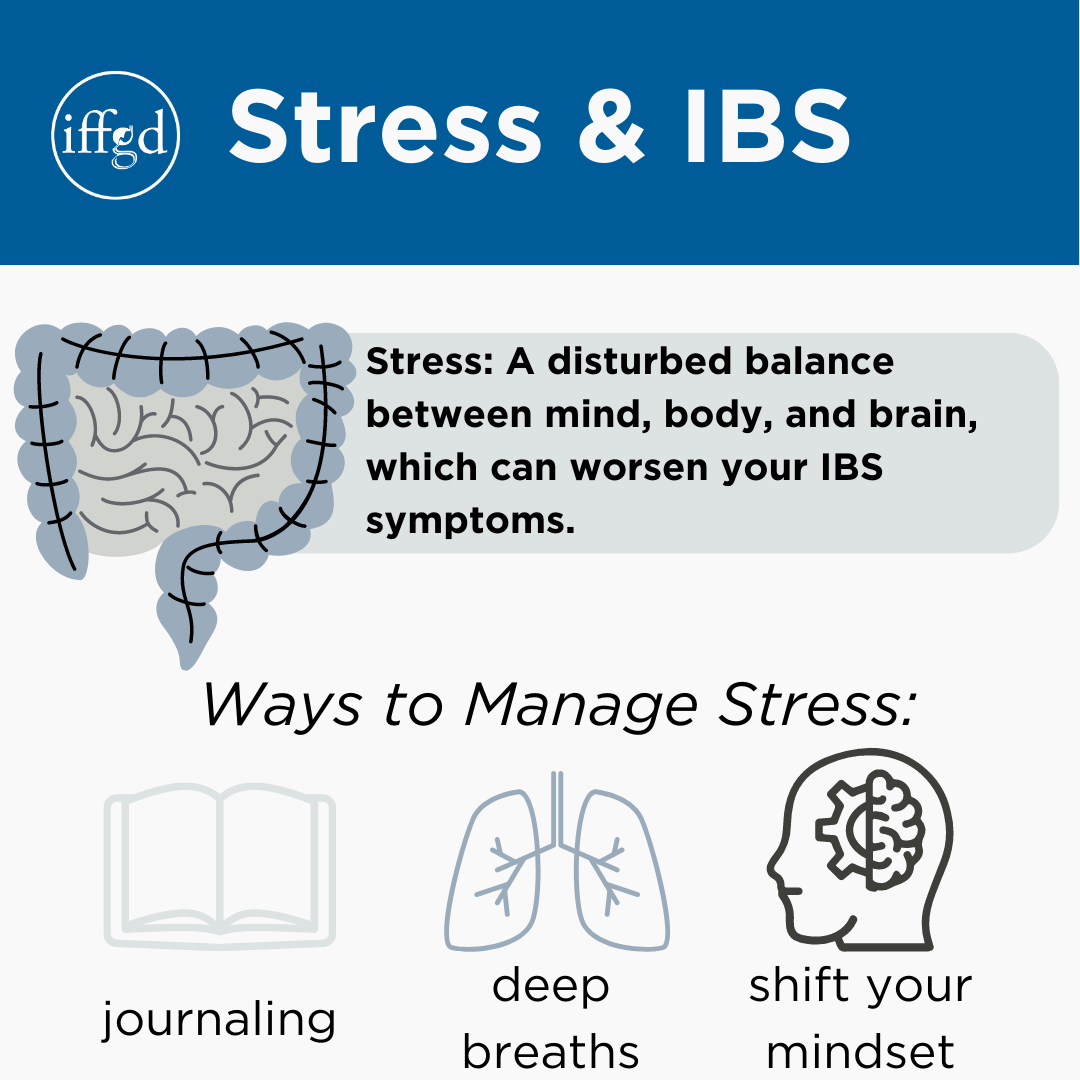Some people with irritable bowel syndrome (IBS) report psychological symptoms such as depressed mood or anxiety. This occurs mainly in people who experience more severe symptoms. It is also seen in patients in highly specialized (tertiary) medical care referral centers.
Emotional distress has been known to worsen IBS symptoms. Going to events that involve eating in restaurants or at social gatherings may cause the onset of symptoms. These symptoms can induce an appropriate but unwanted anticipatory anxiety due to the severity, unpredictability, and negatively perceived consequences of having an “attack.” This may result in continuing symptom occurrence and set up a vicious cycle between emotional distress, symptoms, and personal management strategies. In other words, concerns, worries, and fears can be due to the symptoms experienced by those with IBS rather than due to general anxiety.
Psychological factors and IBS: Important to remember
- Not all people with IBS symptoms have symptoms of psychological distress.
- Psychological factors are not a primary cause of IBS.
- Psychological factors may influence how a person seeks to manage and deal with IBS.
- Many people experience abdominal pain and constipation or diarrhea without any evidence of anxiety, depression, or other psychological symptoms.
Stress and IBS

Stressful events like losing a job or becoming embroiled in an argument are events that can cause a transient change in bowel habits and even abdominal pain for most people.
This response in people with IBS is more pronounced on a recurrent or chronic basis. Therefore, they are more likely to experience symptoms or experience worse symptoms when they are exposed to a significant stressor.
Learn more about stress in IBS
Other people are troubled by unresolved emotional issues that may have arisen in childhood or adulthood. Addressing these issues with an empathetic health care provider, who can refer the patient for counseling, would be important to improve IBS symptoms and daily function in these individuals.
Learn more about psychological treatments for IBS
Read more on Stress and IBS
Report from Yvette Tache, PhD: Stress and Irritable Bowel Syndrome: Unraveling the Code









